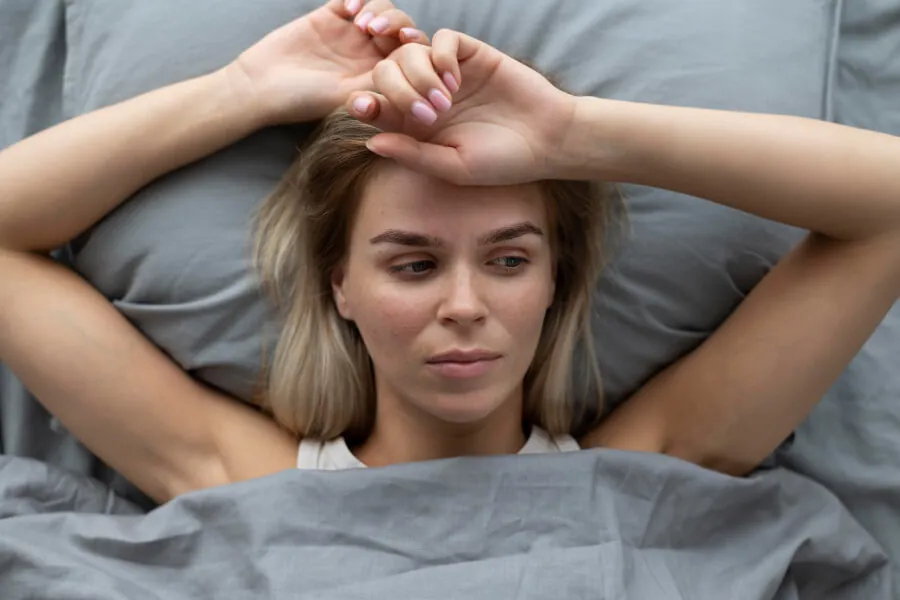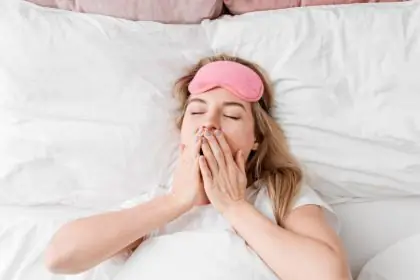Hey there, fellow night owl! Ever find yourself tossing and turning in bed, unable to catch those elusive Z’s? You’re not alone. In today’s hustle-and-bustle world, sleep disorders are becoming increasingly common, leaving many of us feeling groggy and less than our best selves during the day.
Based on specific research and conditions, there are huge variations in the occurrence of sleep disorders. On the other hand, 20–41.7% of the general population suffers from sleep disturbances. “The Recovery Village”
But fear not, because we’re here to shed some light on the subject and explore ways to conquer those sleepless nights.
Let’s Talk Sleep Disorders
1. Trouble Sleeping? Meet Insomnia
Ever lie awake at night, watching the minutes tick by on the clock? That’s sleep disorders for you. It’s like a stubborn houseguest that just won’t leave, keeping you wide-eyed and restless when all you want to do is drift off into dreamland.
2. Sleep Apnea: When Breathing Takes a Break
Do you snore like a freight train and wake up feeling like you’ve been hit by one? Sleep apnea might be crashing your sleep party. It’s a sneaky condition that causes your breathing to pause or become shallow while you’re snoozing, leaving you gasping for air and feeling utterly exhausted come morning.
3. The Leggy Dilemma: Restless Leg Syndrome
Picture this: you’re finally cozy in bed, ready to catch some z’s, when suddenly your legs decide to throw a dance party of their own. That’s restless leg syndrome (RLS) for you, a quirky little condition that gives your legs the uncontrollable urge to move, making it nearly impossible to settle down and get some shut-eye.
4. Narcolepsy: The Unpredictable Sleep Thief
Ever dozed off mid-conversation or found yourself nodding off at the most inconvenient times? That’s narcolepsy playing tricks on you. It’s a quirky disorder that causes excessive daytime sleepiness, sudden sleep attacks, and other unexpected sleep-related shenanigans.
The Difference Between Insomnia and Sleep Apnea
Both insomnia and sleep apnea can cause daytime sleepiness and fatigue. However, there are some key differences:
Symptoms: Sleep disorders primarily affects the ability to fall asleep or stay asleep. Sleep apnea causes breathing to stop and start during sleep, leading to fragmented sleep and daytime sleepiness even after sleeping for a full night.
Cause of Insomnia: Insomnia can be caused by stress, anxiety, medical conditions, medications, or lifestyle choices. Sleep apnea is caused by a physical blockage in the airway.
Snoring: While some people with sleep disorder may snore, it’s a hallmark symptom of sleep apnea.
Uncovering the Mystery: Diagnosis
Getting to the bottom of your sleep woes often involves a little detective work. From keeping a sleep diary to undergoing a sleep study, there are plenty of tools and tests to help pinpoint the culprit behind your sleepless nights.
Embracing Treatment Options
Once you’ve identified the problem, it’s time to tackle it head-on. Whether it’s adjusting your sleep habits, trying out cognitive-behavioral therapy, or exploring medical interventions like CPAP machines, there’s a whole arsenal of treatments at your disposal to help you reclaim your sleep.
Embracing Natural Remedies
Sometimes, the best solutions are the simplest ones. From establishing a soothing bedtime routine to investing in a cozy mattress that feels like sleeping on a cloud, making a few tweaks to your sleep environment and routine can work wonders for your sleep quality.
Navigating the Night
Understanding Your Sleep Patterns
Ever wondered why you’re a night owl while your friend is an early bird? It’s all about your sleep patterns, which are as unique as you are. By tuning into your body’s natural rhythms and embracing your sleep preferences, you can set yourself up for a more restful night’s sleep.
Banishing Bedtime Worries
We’ve all been there: lying in bed, staring at the ceiling, and worrying about tomorrow’s to-do list. But fret not, because there are plenty of ways to banish bedtime worries and drift off into dreamland with ease.
Making Peace with Sleep Anxiety
Sleep anxiety can be a real buzzkill when you’re trying to catch some z’s. But with a little mindfulness and some relaxation techniques up your sleeve, you can tame those anxious thoughts and slip into a peaceful slumber.
Conclusion
In a world that never seems to slow down, getting a good night’s sleep is more important than ever. By understanding the ins and outs of sleep disorders, seeking out effective treatments, and embracing simple yet effective sleep strategies, you can bid farewell to sleepless nights and wake up feeling refreshed, rejuvenated, and ready to tackle whatever the day throws your way. So go ahead, snuggle up under the covers, and let the sweet embrace of sleep carry you away to dreamland. Sweet dreams!
FAQs
What are the common symptoms of insomnia?
Common symptoms of sleep disorder include difficulty falling asleep, staying asleep, waking up too early, feeling unrefreshed upon waking, and experiencing daytime fatigue or irritability.
How can I differentiate between insomnia and sleep apnea?
While both insomnia and sleep apnea can cause sleep disturbances, they have distinct characteristics. Sleep disorders is characterized by difficulty falling or staying asleep, while sleep apnea involves pauses in breathing during sleep, often accompanied by loud snoring and daytime sleepiness.
Which natural treatments can help enhance the quality of your sleep?
Natural remedies for better sleep include establishing a consistent bedtime routine, creating a comfortable sleep environment, practicing relaxation techniques such as deep breathing or meditation, and limiting screen time before bed.
How do I know if I need a sleep study to diagnose a sleep disorder?
If you consistently experience symptoms of a sleep disorders, such as excessive daytime sleepiness, loud snoring, or restless legs, it may be beneficial to undergo a sleep study. Your healthcare provider can evaluate your symptoms and determine if a sleep study is necessary for diagnosis.
What are the treatment options for sleep disorders like insomnia and sleep apnea?
Treatment options for sleep disorders vary depending on the specific condition. For Sleep Disorders, cognitive-behavioral therapy (CBT-I) and medication may be recommended. Sleep apnea treatment often involves lifestyle changes, such as weight loss and avoiding alcohol before bed, as well as medical interventions like CPAP therapy.
Can anxiety contribute to sleep disturbances?
Yes, anxiety can significantly impact sleep quality and contribute to sleep disturbances such as difficulty as Sleep Disorders. Managing stress and anxiety through relaxation techniques, therapy, and lifestyle changes can help improve sleep patterns and overall well-being.





